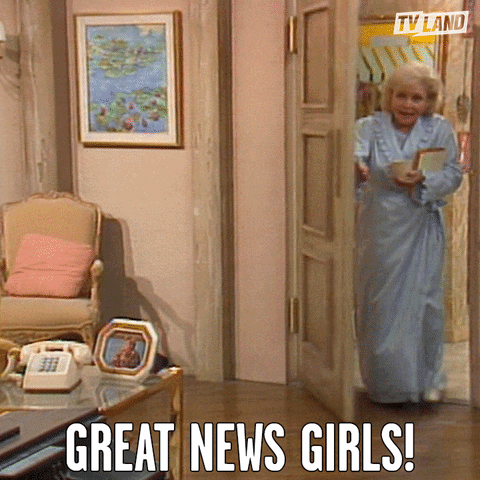One-stop Shop for Balancing Hormones with Diet and Exercise

When your hormones are imbalanced, basically any symptom could be a result and a single hormone may be hard to pinpoint. For example, fatigue could be due to a lack of endorphins or glucagon or testosterone or… With that in mind balancing hormones is crucial, and luckily, it's not impossible to do.
Contents
2. Balancing the major hormones
Key Points
- Your hormones control so many functions that when they aren't balanced, you feel it all over.
- There are simple ways you can change your exercise and diet habits to help your body produce the right amount of different hormones.
What are hormones?
Hormones basically control our bodies. They are a part of our reproduction, growth, mood, metabolism, energy level...etc etc etc. In total we have identified over 200 different hormone like substances in our bodies. Hormones are substances created by the endocrine system, they circulate in the bloodstream and travel throughout the body and carry messages or signals to various areas.

For a little etymology, the word hormone is derived from the Greek word hormao, which means "I excite," and alludes to the fact that each hormone stimulates or excites a certain area of the body called the target gland and tells it to act. Sometimes there is more or less of a particular hormone that is optimum for you and that is called hormone imbalance. Understanding the basics of hormones is a great place to start on the journey to balancing hormones.
There are three classes of hormones:
- Peptide - These hormones typically cause fast changes in protein activity. Some examples of peptide hormones are insulin, glucagon, prolactin, ACTH and gastrin parathyroid hormone. These types of hormones are stored in the body and excreted regularly.
- Steroid - These hormones are typically associated with alterations in gene expression. They have a slower onset but longer duration when compared to peptide hormones. Some examples of steroid hormones are cortisol, aldosterone, estrogen, progesterone and testosterone.
- Amine - This class of hormones is very interesting because many hormones in this category do not function similarly, but they are all derived from the amino acid tyrosine. Some examples of amine hormones are adrenaline, thyroxin, triiodothyronine.
Balancing the major hormones
Even the basics of hormones from an academic standpoint are complex and confusing. When we talk about balancing hormones with diet and exercise there are a few major hormones in play. Those hormones are insulin, cortisol, estrogen, testosterone, human growth hormones (HGH), melatonin and progesterone. Each of these hormones has a very important and very specialized effect on our bodies:
- Melatonin - Melatonin controls sleep and aids in the maintenance of your circadian rhythm. Melatonin levels are low throughout the day, but when you are exposed to less daylight, your melatonin levels drop. Morning exercise enhances sleep patterns and signals your body to start producing melatonin sooner in the evening. This enhances your sleep, which in turn helps you in balancing hormones.

- Insulin - Your pancreas generates insulin every time you consume food to transport glucose from your blood to the cells in your muscles and liver. The problem is that if you don't create enough insulin or don't release it properly, your blood sugar levels rise, putting you at risk for type 2 diabetes. While diet greatly influences our insulin level, exercise also plays a crucial role. Exercise improves insulin sensitivity for up to 48 hours after working out by moving sugar into muscles for storage.
- Human Growth Hormones (HGH) - These hormones are responsible for gaining muscle mass and decreasing body fat. HGH also helps in regulating metabolism and supports your immune system. Exercise, especially during HIIT type workout routines stimulate the production of HGH in our bodies.
- Testosterone - Testosterone affects sex desire, sperm production, bone mass, muscular mass and strength, and other functions in males, whereas it affects bone mass and ovarian function in women. Low testosterone in men can cause sex drive issues, tiredness, hair loss, and mood swings, whereas excessive testosterone in women can cause acne, irregular periods, hair thinning, and diminished sex desire. For both males and females, testosterone also plays a key role in the repair of damaged muscle tissue. Like HGH, testosterone is stimulated through exercise and HIIT type workouts.
- Estrogen - Probably the most important sex hormones for women, estrogen, has a variety of functions: it regulates your menstrual cycle and protects your bones and heart. The major source of estrogen is your ovaries, although your adrenal glands also generate some. Certain medicines, such as birth control pills, or exposure to endocrine disruptors (often found in cosmetic products). It might cause irregular periods, weight gain, tiredness, and reduced libido if your estrogen levels are too high. Exercise, particularly something that helps you to sweat could help in regulating your estrogen levels. If it is the case that various endocrine disruptors from your skincare products are causing your hormones to be out of balance, then ridding your body of them through sweating is something to test.

- Cortisol - Your adrenal glands release cortisol in reaction to stress, tension, and worry. It controls your blood sugar levels, metabolism, and even your memory by eliciting your body's fight-or-flight reaction. In a healthy person, vigorous activity causes a short-term rise in cortisol levels, but studies suggest that following this spike, overall cortisol levels drop, bringing you back to a balanced level.
Final Thoughts
Balancing hormones might seem like an incredibly difficult task when you take into consideration that there are over 200 different types. However, our bodies are incredibly complex machines that are designed to manage their levels for us. It seems that all we need to do is take care of our bodies. Getting a proper amount of nutrients, regular physical activity and an adequate amount of sleep every night is probably the best cure for any type of illness ranging from acne to cancer, these factors have been linked to positive health results.
Written by Kiana St. Onge
UP NEXT:
Breaking the Stigma Around Stretch Marks on Thighs (And Everywhere Else Too)
Back to School: A Lesson on Self-Care Routines
SOURCES:
- https://www.pituitary.org.uk/information/hormones/
- https://courses.lumenlearning.com/wmopen-biology2/chapter/types-of-hormones/
- https://pubmed.ncbi.nlm.nih.gov/3888442/
- https://inthemirra.com/blogs/news/whats-in-lotion?_pos=1&_sid=e13b504b8&_ss=r
- https://www.parsleyhealth.com/blog/exercise-and-hormones/






